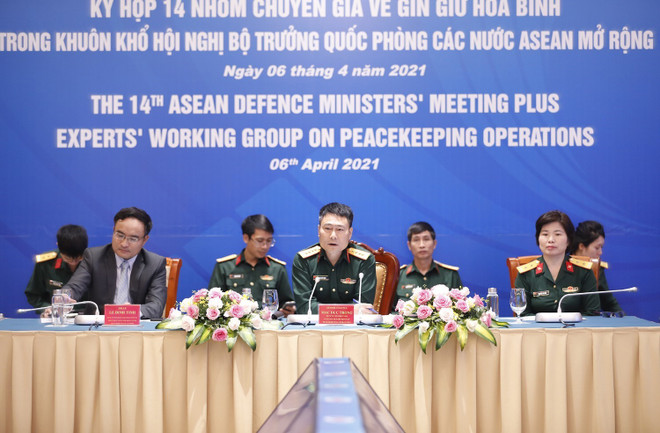The eventwas co-chaired by the head of Vietnam’s group of experts on peacekeepingoperations, Col. Mac Duc Trong, and his Japanese counterpart Matsuzawa Tomoko.
It was thefirst activity of the EWG on peacekeeping operations, fourth cycle, and showingthat Vietnam has proactively fulfilled its dual role as a non-permanent memberof the UN Security Council and co-chair of the event together with Japan, aswell as affirming the country’s role, prestige, position, and contributions tomultilateral cooperation mechanisms in the field in the region.
It alsoprovided a platform to enhance the sharing of expertise and experience betweenASEAN member states and the UN to increase women’s participation inpeacekeeping operations.
Accordingly,ADMM is focusing on seven practical cooperation areas, with UN peacekeepingoperations being one of the major contents.
Amid theCOVID-19 pandemic, which has had a long-term political and economic toll, theevent reflects both Vietnam and Japan’s efforts to maintain the EWG’sactivities.
He suggesteddelegates offer opinions on reviewing activities in the third cycle, deviseplans for the fourth cycle and thematic discussions on women’s participation inpeacekeeping activities, and discuss the challenges in dealing with sexualviolence and abuse.
Followingthe success of co-chairs Indonesia and Australia in the last cycle, Vietnam andJapan have worked closely together since last year to ensure the success of thisfourth cycle.
Tomoko, forher part, said Japan will mark the 30th anniversary of itsparticipation in UN peacekeeping operations during the fourth cycle.
Sheexpressed her belief that discussions at the event will make positivecontributions to each country’s commitments and peacekeeping operations.
Asco-chair, Japan pledged to do its best in the next three years to make thefourth cycle a success, thus bringing benefits to all member states, she said.
Nearlyeight years after joining UN peacekeeping operations, Vietnam has sent threeteams with 189 officers to level-2 field hospitals, including 33 women, or over17 percent, which is higher than the 8-10 percent requested by the UN.
The countryhas also sent 54 officers to UN missions in the Central African Republic, SouthSudan, and UN headquarters, including four women, or 7.4 percent./.






























